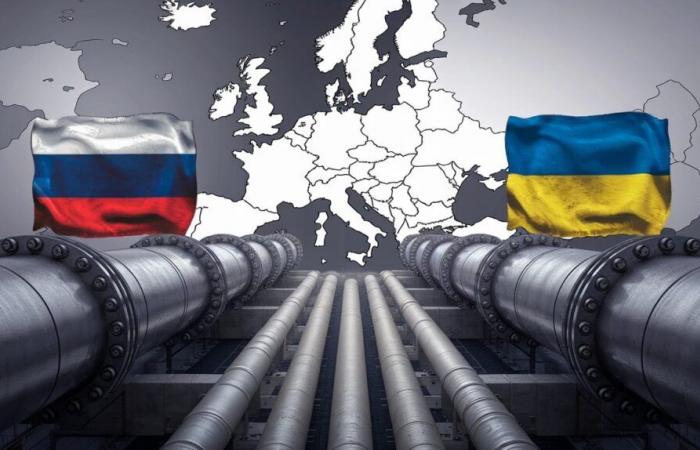Ukrainian President Zelensky strongly opposes a possible transit of Russian gas purchased by Azerbaijan to the EU via Ukraine. A decision which raises many questions about the energy future of Europe. What are the issues?
The thorny issue of the transit of Russian gas to the European Union via Ukraine has just taken a new turn. During a press conference in Brussels, Ukrainian President Volodymyr Zelensky expressed his opposition to a potential mechanism that would see Azerbaijan buy Russian gas and then resell it to European countries by passing it through Ukrainian territory.
Ukraine wants to stop war financing with Russian gas
Zelensky’s position is clear: Ukraine does not want to “play games” by indirectly allowing Russia to continue to enrich itself through its gas exports despite the ongoing conflict. As he pointed out:
If it’s another country that receives Russian gas and then transits that gas, that amounts to continuing to make money from this war and transferring money to Russia.
The Ukrainian president, known for his advocacy of tougher sanctions against Russian energy sectornevertheless opened the door ajar with one exception. If a European country agrees to receive Russian gas without paying the money to Moscow until the end of the war, then Ukraine could “think” about this scenario.
European countries worried about their gas supply
This position comes at a time when several EU member states, in particular Slovakia and Hungary which are heavily dependent on Russian gas, are worried about seeing their deliveries completely interrupted by December 31, without credible immediate alternatives.
Indeed, Ukraine announced this summer that it would not renew the contract linking it to Russia for the transit of gas to Europe via its gas pipeline network. A decision which impacts both kyiv and Moscow, with both countries benefiting financially from this agreement despite the conflict.
Towards a definitive stop to the transit of Russian gas via Ukraine?
Faced with the complexity of the situation, discussions were initiated between Ukraine, the EU and Azerbaijan to imagine a mechanism in which Baku would buy Russian gas before reselling it to Europeans by transiting it through Ukraine. . An option which now seems compromised in view of Zelensky’s firm position.
For his part, Vladimir Putin confirmed during his annual press conference that there would be “no new contract” with Ukraine for gas transit. The Russian president, however, assured that despite the financial losses, Russia and Gazprom “will survive”.
What alternative routes for Russian gas to Europe?
With the sabotage of the Nord Stream gas pipeline in the Baltic Sea in September 2022, the options for transporting Russian gas to Europe are narrowing. Currently, Moscow uses two main routes:
- The Ukrainian gas pipeline network
- The TurkStream gas pipeline and its Balkan Stream extension
However, volumes transiting through Ukraine fell by almost two thirds compared to 2021, reaching just 14.65 bcm in 2023, just under half of total Russian gas exports to Europe according to official figures.
This situation raises many questions about Europe’s energy future. Will EU countries manage to sufficiently diversify their gas supply sources to compensate for a potential permanent loss of Russian deliveries via Ukraine? Will Russia find new routes to maintain its exports to the European market?
One thing is certain, the war in Ukraine continues to profoundly disrupt the European energy landscapeforcing the different actors to adapt and imagine new geopolitical and economic balances. Zelensky’s decision to oppose the transit of Russian gas purchased by Azerbaijan is a further illustration of this.






